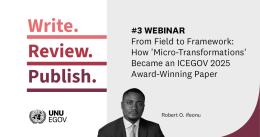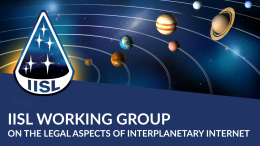On 3 July 2025, UNU-EGOV hosted the workshop “Co-creation for Public Administration: Engaging Citizens in the AI Lifecycle”, held at its premises in Guimarães and streamed online, as part of the AICOSERV (AI Technologies for Sustainable Public Service Co-Creation) project.
The full-day event brought together experts, public officials and researchers to explore how citizens can be meaningfully engaged throughout the AI systems in public administration. Through a rich programme of keynotes, panel discussions, and interactive breakout sessions, participants reflected on the power of co-creation to shape and design AI for Public service and Government, but also explored the use of digital tools, including AI in co-creation. The participants shared insights, case studies, experiences and lessons learned regarding citizen engagement for AI development and deployment.
Programme highlights included opening remarks by UNU-EGOV and AICOSERV leads, notably Luis Soares (UNU-EGOV) and Naci Karcin (AICOSERV Project Coordinator), followed by keynote presentations from:
- J. Ignacio Criado (Universidad Autónoma de Madrid), who addressed macro, meso, and micro perspectives of co-creation in AI and public administration;
- Elsa Estevez (National University of the South, Argentina), who emphasised the importance of co-creation and education in the public sector;
- Manuel Filipe Santos (University of Minho, Portugal), who explored current trends and challenges in AI for enhanced citizenship.
A dynamic panel discussion on best practices and challenges in citizen engagement highlighted the competencies and skills to develop, moderated by Elsa Estevez and with the contribution of Adrijana Paljušević (UNU-EGOV), Paulo Vale (AMA) and Francisco Carvalho (Laboratório da Paisagem).
Finally, a hands-on breakout activity led by Catarina Fontes (TUM), where participants co-designed practical frameworks for inclusive AI governance.
Throughout the day, discussions explored participatory methodologies such as living and innovative labs, digital platforms, and different frameworks with a strong emphasis on trust, transparency, and aligning AI systems with local values.
The workshop concluded with the development of actionable recommendations for embedding co-creation in digital governance strategies at all levels.
A heartfelt thank you to all speakers, facilitators, and participants for contributing to such a meaningful exchange!



